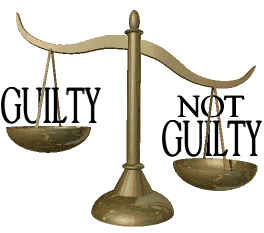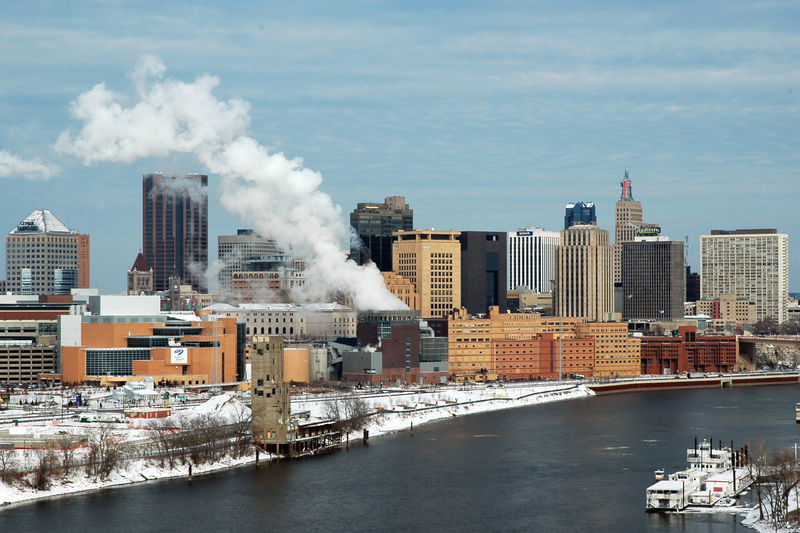When Good News For Cops Is Bad news For Cops by Claire Wolfe
WHEN GOOD NEWS FOR COPS
IS BAD NEWS FOR COPS
© BY CLAIRE WOLFE
"Be careful what you wish for. You might get it."
You might win the lottery and end up dancing the tango with the laxman for the next ten years. You might find True Love—only to discover that your male has relatives from Hades and slowly begins to resemble them.
Or, if you're a peace officer, you might be granted ever-expanding search powers—only to find out one day that those ballooning powers hurt you worse than they hurt the criminals you're supposed to take off the streets.
Congress keeps creating new and expanded authority for searches and seizures. The Supreme Court keeps finding creative reasons to destroy historic protections against unlawful searches. Like the authority to:
• Bring in drug-sniffing dogs when no
drug use is suspected.
• Conduct random checkpoints for
everything from drunk driving to seal-
belt compliance.
• Perform violent no-knock raids in the
middle of the night with little justifica
tion.
• Force innocent people to ID them
selves or face arrest.
Search passengers in vehicles because
the driver might have committed a
crime.
"Sneak and peek" into data and pos
sessions without notifying the owner.
Search vehicles even when the driver
is arrested outside them.
• Get secret search warrants, backed
by secret affidavits, issued by secret
courts.
You might think those expanded powers are good. Government lawyers and high law-enforcement mucky-mucks think the eternal expansion of police powers is good. Every time there's a new decision or a new law expanding search authority, the bigwigs trum-
pet the virtue of "Giving police the tools they need to get criminals off the streets" or "Giving government the tools to fight terrorism and ensure our national security."
But when the long-term consequences hit, die lawyers and mucky-mucks will be behind the gates of their cushy suburban communities. It's the ordinary officer, the little guy on the streets, who's going to suffer.
And suffer they will. Eventually. Not today, not tomorrow. Maybe not for another ten years. But eventually, a day of rage will arrive.
When the long-term
consequences hit,
the lawyers and
mucky-mucks will be
behind the gates of
their cushy suburban
communities. If s the
ordinary officer, the little
guy on the streets, who's going to suffer.
Of course, peace officers already deal with rage every day. But this will be different.
The rage isn't going to come from guilty individuals trying to weasel out of responsibility after being caught in the act. The rage isn't going to come from rapists, murderers, terrorists and gangsters to whom rage is a way of life. It isn't going to come from drug dealers. Or scam artists. Or embezzlers. They're all part of the criminal system. Getting frisked or strip-searched or having their
stuff confiscated is just a routine occupational hazard for a lot of them.
No, the rage is going to come from a quarter where everyone will least expect it. It's going to come from tens of thousands of ordinary working-class and middle-class men and women—people who grew up in homes where their mothers told them, "The police officer is your friend."
Let me describe a few cop-encounters that happened to people 1 know. I've given them nicknames to avoid hurling them further.
Betsy, a middle-aged interior decorator, is hauling a van-load of samples on a Texas highway. She's slopped for a broken taillight She's done nothing else wrong. But because she's near the Mexican border, officers insist on searching her van. They make it clear that if she doesn't "consent," they'll bring out drug dogs—and that those dogs will find something. Bewildered and terrified, Betsy "consents" to the search. Two hours later, the police depart and leave her standing in the growing darkness, alone on the highway, to re-pack her vehicle.
Patrick, a young man from Wyoming, is driving clown a dark, lonely road in an Eastern state. A squad car pulls behind him. On go the bubble lights. Patrick has no idea why anyone would stop him, (It will later turn out that the officer ran his license plate, made a data-entry error, and thought the truck might be stolen.) Patrick fears to pull over in the deserted dark, so he slows down, puts on his emergency blinkers, waves out the window in a "follow me" gesture, and drives about a mile to a lighted shopping mall. Thereupon, the officer drags him out of his vehicle, ransacks it, and hauls Patrick to jail for not pull-
32 S.W.A.T. SEPTEMBER 2005
www.swatmag.com
IS BAD NEWS FOR COPS
© BY CLAIRE WOLFE
"Be careful what you wish for. You might get it."
You might win the lottery and end up dancing the tango with the laxman for the next ten years. You might find True Love—only to discover that your male has relatives from Hades and slowly begins to resemble them.
Or, if you're a peace officer, you might be granted ever-expanding search powers—only to find out one day that those ballooning powers hurt you worse than they hurt the criminals you're supposed to take off the streets.
Congress keeps creating new and expanded authority for searches and seizures. The Supreme Court keeps finding creative reasons to destroy historic protections against unlawful searches. Like the authority to:
• Bring in drug-sniffing dogs when no
drug use is suspected.
• Conduct random checkpoints for
everything from drunk driving to seal-
belt compliance.
• Perform violent no-knock raids in the
middle of the night with little justifica
tion.
• Force innocent people to ID them
selves or face arrest.
Search passengers in vehicles because
the driver might have committed a
crime.
"Sneak and peek" into data and pos
sessions without notifying the owner.
Search vehicles even when the driver
is arrested outside them.
• Get secret search warrants, backed
by secret affidavits, issued by secret
courts.
You might think those expanded powers are good. Government lawyers and high law-enforcement mucky-mucks think the eternal expansion of police powers is good. Every time there's a new decision or a new law expanding search authority, the bigwigs trum-
pet the virtue of "Giving police the tools they need to get criminals off the streets" or "Giving government the tools to fight terrorism and ensure our national security."
But when the long-term consequences hit, die lawyers and mucky-mucks will be behind the gates of their cushy suburban communities. It's the ordinary officer, the little guy on the streets, who's going to suffer.
And suffer they will. Eventually. Not today, not tomorrow. Maybe not for another ten years. But eventually, a day of rage will arrive.
When the long-term
consequences hit,
the lawyers and
mucky-mucks will be
behind the gates of
their cushy suburban
communities. If s the
ordinary officer, the little
guy on the streets, who's going to suffer.
Of course, peace officers already deal with rage every day. But this will be different.
The rage isn't going to come from guilty individuals trying to weasel out of responsibility after being caught in the act. The rage isn't going to come from rapists, murderers, terrorists and gangsters to whom rage is a way of life. It isn't going to come from drug dealers. Or scam artists. Or embezzlers. They're all part of the criminal system. Getting frisked or strip-searched or having their
stuff confiscated is just a routine occupational hazard for a lot of them.
No, the rage is going to come from a quarter where everyone will least expect it. It's going to come from tens of thousands of ordinary working-class and middle-class men and women—people who grew up in homes where their mothers told them, "The police officer is your friend."
Let me describe a few cop-encounters that happened to people 1 know. I've given them nicknames to avoid hurling them further.
Betsy, a middle-aged interior decorator, is hauling a van-load of samples on a Texas highway. She's slopped for a broken taillight She's done nothing else wrong. But because she's near the Mexican border, officers insist on searching her van. They make it clear that if she doesn't "consent," they'll bring out drug dogs—and that those dogs will find something. Bewildered and terrified, Betsy "consents" to the search. Two hours later, the police depart and leave her standing in the growing darkness, alone on the highway, to re-pack her vehicle.
Patrick, a young man from Wyoming, is driving clown a dark, lonely road in an Eastern state. A squad car pulls behind him. On go the bubble lights. Patrick has no idea why anyone would stop him, (It will later turn out that the officer ran his license plate, made a data-entry error, and thought the truck might be stolen.) Patrick fears to pull over in the deserted dark, so he slows down, puts on his emergency blinkers, waves out the window in a "follow me" gesture, and drives about a mile to a lighted shopping mall. Thereupon, the officer drags him out of his vehicle, ransacks it, and hauls Patrick to jail for not pull-
32 S.W.A.T. SEPTEMBER 2005
www.swatmag.com












2 Comments:
BIG BROTHER IS WATCHING!
St. Paul Police aren't as bad as Mpls.
Post a Comment
<< Home